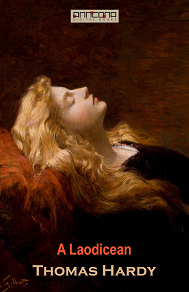
Förlag: Anncona Media
Kategori:
Romaner Engelskspråkiga
Tillgänglig sedan: april 2016
A Laodicean
A Laodicean is a novel by Thomas Hardy, published in 1881. Set in the more technologically advanced contemporaneous age, the plot exhibits devices uncommon for Hardy, such as falsified telegrams and faked photographs.
The Laodicean (someone whose religious beliefs are “lukewarm”) of the title is Paula Power who inherits a medieval castle from her industrialist father who has purchased it from the aristocratic De Stancy family, which she is determined to restore. Being of a modern frame of mind, she has the telegraph connected to the castle – and uses it all the time in the course of the story.
George Somerset is a young architect who is invited to compete for the chance of the commission to restore the castle and who falls in love with Paula. However, the brother of Paula’s great friend Charlotte De Stancy – of the aristocratic family that once owned the castle – aided by his villainous illegitimate son, sets out to win Paula for himself.
Although Paula likes the idea of being a De Stancy, she is drawn to George from the start. The various machinations of De Stancy and his son keep the narrative moving along at a fast pace.
Thomas Hardy (1840-1928) was an English novelist and poet. A Victorian realist, in the tradition of George Eliot, he was also influenced both in his novels and poetry by Romanticism, especially by William Wordsworth.
Charles Dickens is another important influence on Thomas Hardy. Like Dickens, he was also highly critical of much in Victorian society, though Hardy focused more on a declining rural society.
Initially he gained fame as the author of such novels as Far from the Madding Crowd (1874), The Mayor of Casterbridge (1886), Tess of the d'Urbervilles (1891), and Jude the Obscure (1895). However, since the 1950s Hardy has been recognized as a major poet, and had a significant influence on The Movement poets of the 1950s and 1960s, including Phillip Larkin.
The bulk of his fictional works, initially published as serials in magazines, were set in the semi-fictional region of Wessex and explored tragic characters struggling against their passions and social circumstances. Hardy's Wessex is based on the medieval Anglo-Saxon kingdom and eventually came to include the counties of Dorset, Wiltshire, Somerset, Devon, Hampshire, and much of Berkshire, in south west England.
Information
Stöds av följande plattformar
PC/Mac
Surfplatta Läsplatta
Smartphone
